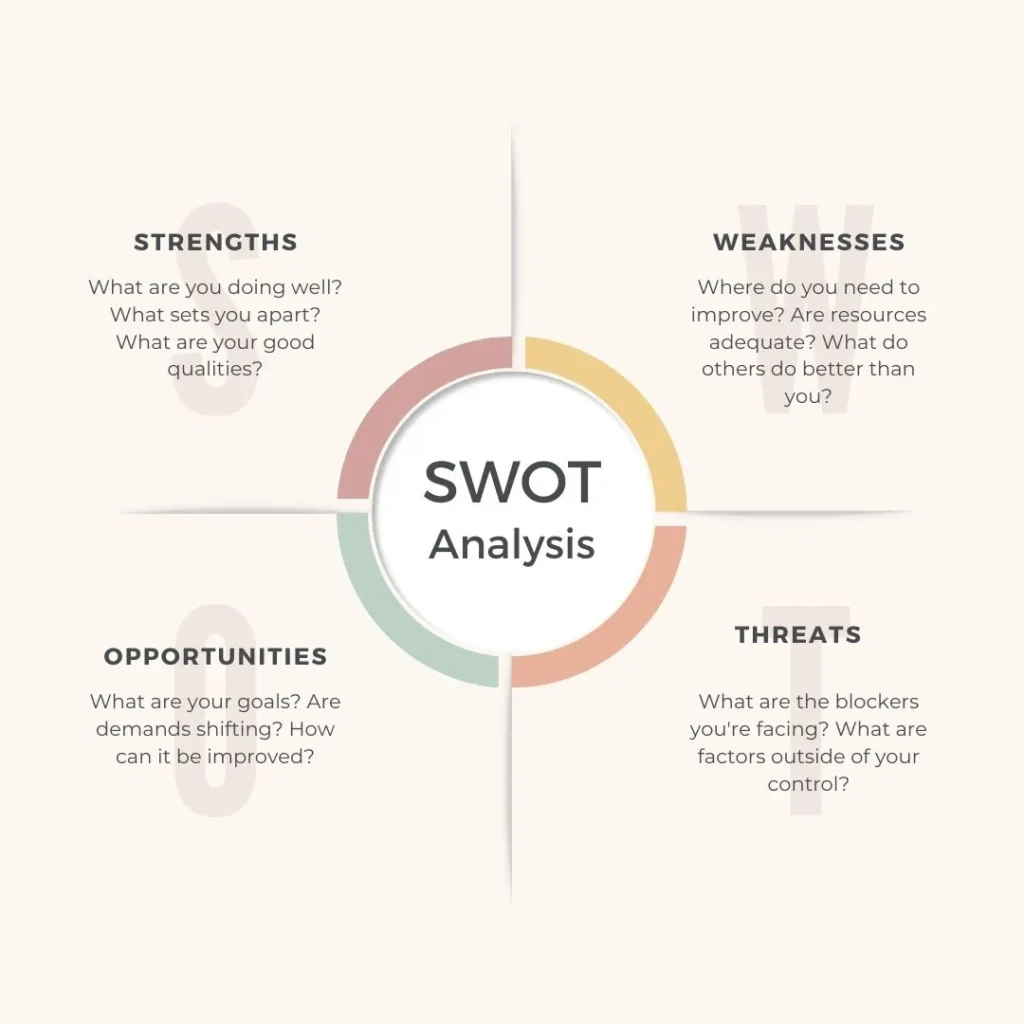In today’s rapidly evolving business landscape, technology is no longer just a luxury for large corporations. It’s a necessity for small businesses aiming to stay competitive and grow. One key player in this digital transformation is the business technology analyst (BTA). But how exactly can a BTA help your small business thrive? Let’s break it down.
Table of Contents
ToggleIntroduction
Technology has reshaped every industry, creating new opportunities and challenges for businesses. For small business owners, harnessing the power of technology can be a game-changer. However, navigating the complex world of tech solutions can be daunting. This is where a business technology analyst (BTA) steps in. This blog will explore the role of BTAs and how they can drive your business growth, providing practical examples and insights along the way.
What is the role of a business technology analyst?
A business technology analyst is a professional who bridges the gap between business needs and technology solutions. They analyze a company’s current systems, identify areas for improvement, and implement technology-driven strategies to enhance performance.

Definition and Scope of Responsibilities :
BTAs have a broad scope of responsibilities, including assessing technological needs, conducting cost-benefit analyses, and managing IT projects. They also ensure that new technologies align with the company’s goals and add value to the business.
Key skills and qualifications
To be effective, a BTA must possess a mix of technical and business acumen. Essential skills include data analysis, project management, and an in-depth understanding of various technology platforms. Additionally, strong communication skills are vital for translating complex technical concepts into understandable business strategies.
How BTAs Can Help Small Businesses Grow

BTAs play a crucial role in identifying and implementing technology solutions that drive business growth. Here are three ways they can help:
Analysing Current Technology Needs and Identifying Gaps
The first step in leveraging technology is understanding what you currently have and what’s missing. BTAs conduct thorough audits of your existing systems, pinpointing inefficiencies and gaps that could be hindering your growth. This analysis enables them to recommend targeted solutions that address your specific needs.
Recommending and Implementing Cost-Effective Solutions
Budget constraints are a common challenge for small businesses. BTAs are adept at finding cost-effective technology solutions that provide maximum ROI. Whether it’s adopting cloud services to reduce IT costs or implementing automation tools to streamline operations, their expertise ensures you get the most bang for your buck.
Providing ongoing support and strategic advice
Technology adoption doesn’t end with implementation. BTAs offer ongoing support to ensure your systems run smoothly and continue to add value. They also provide strategic advice on future technology investments, keeping you ahead of the curve in an ever-changing digital landscape.
Case Studies: Real-Life Examples of BTAs Driving Business Growth
To illustrate the impact of BTAs, let’s look at some real-life success stories:
Example 1: A Retail Store’s Digital Transformation
A small retail store struggling with inventory management enlisted the help of a BTA. By implementing an integrated point-of-sale system and inventory management software, the store reduced stock outs and overstock situations, leading to a 20% increase in sales within six months.
Example 2 illustrates the operational efficiency of a tech startup.
Manual administrative tasks overwhelmed a tech startup experiencing rapid growth. A BTA recommended automating these processes using specialized software, freeing up the team’s time to focus on product development. The result? The result was a 30% increase in productivity and a faster time to market for their products.
Example 3: A Non-profit’s Donor Management
A non-profit organization found it challenging to manage donor relations and fundraising campaigns. A BTA introduced a CRM system tailored to non-profits, which streamlined donor communications and improved campaign tracking. This led to a 15% increase in donations within the first year.
The role and duties of a business technology analyst are significant.
A business technology analyst’s role is critical to the success of any small business looking to leverage technology for growth. Their duties extend far beyond mere technical support—they act as strategic partners who drive efficiency, innovation, and competitive advantage. Here are some of the key roles and duties that a BTA can perform:
Strategic Planning and Consultation
One of the primary responsibilities of a BTA is to align technology strategies with the business’s overall goals. They consult with stakeholders to understand business objectives and then develop comprehensive technology plans that facilitate these goals. This ensures that every technological investment is purposeful and contributes to the business’s growth.
Project Management
As project managers, BTAs frequently lead IT initiatives, supervising the deployment of new systems and guaranteeing timely and cost-effective project completion. Their project management skills are crucial in mitigating risks, coordinating cross-functional teams, and ensuring smooth transitions from old systems to new ones.
Data analysis and decision support
Data is a valuable asset for any business. BTAs excel at analysing data to uncover trends, inefficiencies, and opportunities. They use tools like business intelligence software to convert raw data into actionable insights, helping businesses make informed decisions that drive growth and improve operations.
Training and support
Introducing new technology can be daunting for staff. BTAs provide essential training to ensure that employees are proficient with new systems. Furthermore, they offer ongoing support to troubleshoot issues, optimize use, and continually enhance system performance.
Engaging with a BTA: What Small Business Owners Should Know
Selecting the right BTA and establishing a productive relationship is crucial for maximizing their value.
Tips for Selecting the Right BTA
When choosing a BTA, look for someone with experience in your industry and a proven track record of successful projects. Ask for references and case studies to gauge their expertise. It’s also important to find someone who understands your business goals and can communicate effectively with your team. Microsoft helps you navigate the ever-changing landscape. Learn which platform fuels business growth – click here!
Best Practices for Collaboration
Effective collaboration with a BTA involves clear communication and setting realistic expectations. Regular check-ins and updates ensure everyone is on the same page. Additionally, involving key stakeholders in the decision-making process fosters a sense of ownership and commitment to the project’s success.
Maximising the value of BTA services
To get the most from your BTA, leverage their expertise beyond immediate projects. Seek their advice on long-term technology strategies and emerging trends. Their insights can help you stay ahead of the competition and continuously improve your business operations.
The role of BTAs in the future of business technology is significant.
The landscape of business technology is constantly evolving, presenting both challenges and opportunities.
Business technology trends
Emerging trends such as artificial intelligence, machine learning, and the Internet of Things (IoT) are transforming the way businesses operate. BTAs are at the forefront of these changes, helping businesses harness these technologies to drive innovation and efficiency. Social media is crucial for businesses today. It offers a giant platform to connect directly with customers, build brand awareness, and foster loyalty through engaging content and interactions. Discover the perfect social media platform to skyrocket your brand awareness, engagement, and sales.
Evolving requirements for BTAs
As technology evolves, so do the skills required for BTAs. Continuous learning and staying updated with the latest advancements are essential for BTAs to remain effective. This adaptability ensures they can provide relevant and impactful solutions to businesses.
Anticipated Challenges and Opportunities
Adopting new technologies comes with its own set of challenges, including cybersecurity threats and data privacy concerns. However, these challenges also present opportunities for BTAs to develop robust security frameworks and ethical guidelines. By proactively addressing these issues, BTAs can help businesses build trust and maintain a competitive edge.
Conclusion
In conclusion, a business technology analyst can be a valuable asset for small businesses looking to grow and thrive in today’s digital age. From identifying technology gaps to implementing cost-effective solutions and providing ongoing support, BTAs offer a comprehensive approach to leveraging technology for business success. By understanding their role and engaging with them effectively, small business owners can unlock new levels of efficiency, innovation, and growth.
If you’re ready to take your business to the next level, consider partnering with a BTA. Their expertise can help you navigate the complexities of technology and position your business for long-term success.

[…] sales, customer service, and marketing efforts. It’s highly customizable and can grow as your business […]